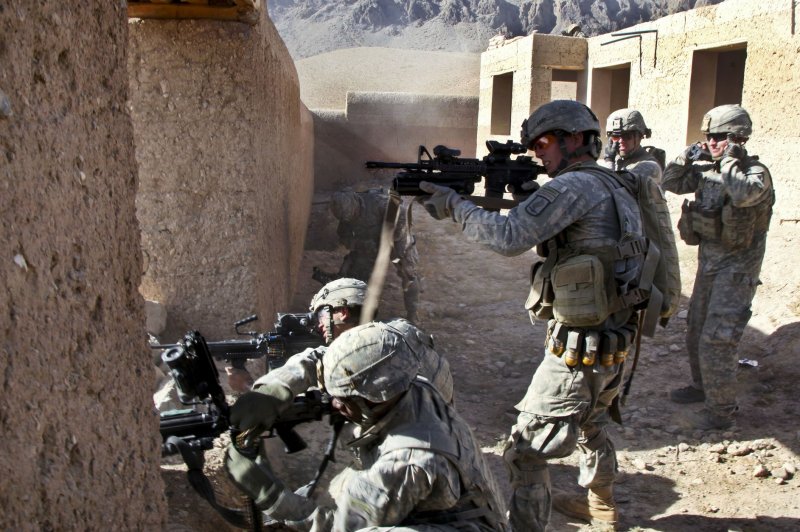According to a new report by the RAND Corporation, private contractors in conflict zones reported higher rates of PTSD and depression than military personnel. But unlike the latter, contractors do not get much help and care before or after their deployment. (File/UPI/Donald Watkins/U.S. Army) |
License Photo
Dec. 10 (UPI) -- Private contractors and workers in conflict zones have reported higher rates of post-traumatic stress disorder and depression in the last two years than military personnel.
According to a new report by the RAND Corporation, 25 percent suffered from PTSD, 18 percent from depression and nearly half reported alcohol misuse.
The results came from an anonymous online survey of 660 people who had been in conflict zones between 2011 and 2013.
“Given the extensive use of contractors in conflict areas in recent years, these findings highlight a significant but often overlooked group of people struggling with the after-effects of working in a war zone,” said Molly Dunigan, co-author of the study and a political scientist with RAND.
Researchers caution against taking the results at face value because of variations in the measures used to calculate these rates. U.S. troops serving in Afghanistan and Iraq have a PTSD rate ranging from 4 percent to 20 percent, depression rates are 5 to 37 percent and alcohol misuse is estimated at between 5 and 39 percent.
Also, nearly 84 percent of the contractors had served in the military, and it was difficult to gauge whether their work as contractors or as soldiers was the source of the problem.
But researchers largely agreed that unlike military personnel these contractors had little or no access to mental health care facilities.
“The military has programs before, during and after deployment to help service members address deployment-related mental health problems,” said Carrie Farmer, co-author of the study and a RAND health policy researcher. “The majority of contractors we surveyed reported that they did not have access to similar resources.”
Sixty-one percent of those surveyed were from the U.S., 24 percent were from the U.K. and the rest were citizens of Australia, South Africa, New Zealand and other nations. The report showed that contractors for the U.K. had PTSD and depression rates half that of the U.S. and were exposed to low levels of combat and better prepared to deal with working in a combat zone.
“While we tried to control for combat experience, there may be unmeasured differences in what the two groups were exposed to, or there may be social or cultural differences in how they respond to combat,” Farmer said.
[RAND Corporation]







